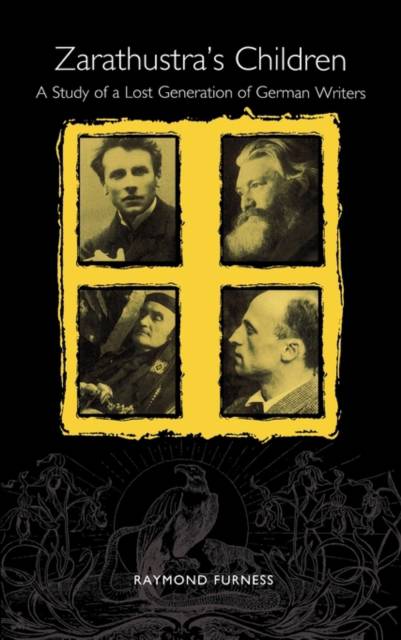
- Retrait gratuit dans votre magasin Club
- 7.000.000 titres dans notre catalogue
- Payer en toute sécurité
- Toujours un magasin près de chez vous
- Retrait gratuit dans votre magasin Club
- 7.000.0000 titres dans notre catalogue
- Payer en toute sécurité
- Toujours un magasin près de chez vous
177,45 €
+ 354 points
Description
A study of the enormous influence of the writings of Friedrich Nietzsche on turn-of-the-century German literature. The aim of this book is to explore "that post-Nietzschean archipelago of German literature which no one mind can hope to map, let alone inhabit" (Michael Hamburger) and to introduce it to the English-speaking reader for the firsttime, in accessible form. The study starts from the assumption that the daring imagery and cosmic sweep of Thus Spake Zarathustra provided the impetus for the creation of visionary epics and cosmological poetic universes. The book is original in that it presents for the first time a selection of writers hitherto regarded as impossible of access and reduces their epic scope to manageable proportions while preserving their essential meaning. Among thewriters treated are Alfred Mombert, Theodor Däubler, Rudolf Pannwitz, Ludwig Derleth, Alfred Schuler, Ludwig Klages, Christian Morgenstern, and the members of the Friedrichshagen Circle. Furness draws on the most recent scholarship and provides a fascinating account of a 'lost generation.' The book will be of interest to Nietzsche scholars, to students of Lebensphilosophie, and to those interested in German literature around the turn of the century. It will be of special interest to those drawn to the creation of myths and to radical religious thought. Raymond Furness is professor and former chair of German at St.Andrews University, Scotland. He has published widely on late nineteenth- and early twentieth-century German literature.
Spécifications
Parties prenantes
- Auteur(s) :
- Editeur:
Contenu
- Nombre de pages :
- 230
- Langue:
- Anglais
- Collection :
- Tome:
- n° 1
Caractéristiques
- EAN:
- 9781571130570
- Date de parution :
- 24-06-00
- Format:
- Livre relié
- Format numérique:
- Genaaid
- Dimensions :
- 161 mm x 236 mm
- Poids :
- 535 g

Les avis
Nous publions uniquement les avis qui respectent les conditions requises. Consultez nos conditions pour les avis.






